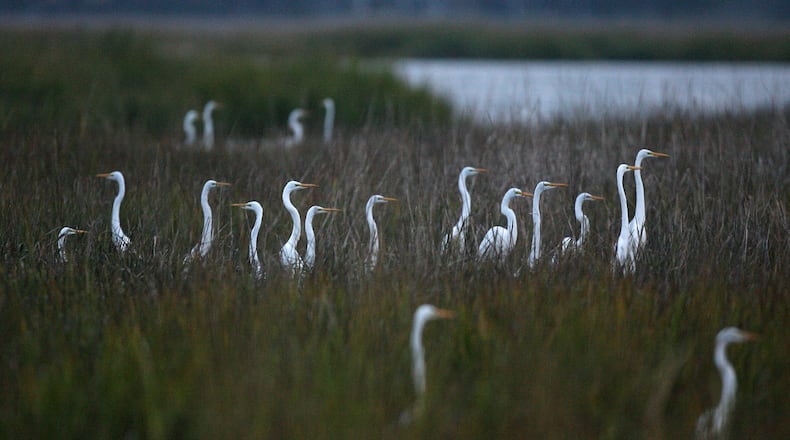A bill that would make it easier for private property owners to legally claim Georgia coastal marshland missed a key deadline for passage this year, but the bill’s sponsor said he will seek changes that may improve its chances next year.
Georgia’s roughly 100 miles of coast is known for its vast stretches of relatively untouched salt marsh teeming with wildlife, in contrast to many other states on the East Coast that built heavily along the shoreline, eating into the natural habitat and the flood buffer that marshes provide.
Most experts credit the marshes’ conservation to a forward-looking 1970 state law called the Coastal Marshlands Protection Act, which used tides and plant species to define protected areas. In Georgia, all salt marsh belongs to the state unless a property owner can trace their title to a historical grant.
The proposal known as HB370 that was introduced last month was branded a conservation bill by backers who said the state needed to streamline legitimate claims by private property owners who have a valid grant, in order to encourage wetland restoration.
Critics said the bill made it too easy to effectively privatize a protected public resource, and it was opposed by leading environmental groups including the Sierra Club, the Southern Environmental Law Center and One Hundred Miles, a conservation group dedicated to Georgia’s coast.
Some House lawmakers also expressed concern and sent the bill back to the judiciary committee without scheduling the full floor vote needed to advance the bill in this session.
The bill’s lead sponsor, State Rep. Matt Reeves, a Republican from Duluth, said he intended to amend the bill based on feedback, such as including provisions favorable to Gullah Geechee landowners and others who are unable to clear title to communally-held property, known as “heirs’ property.”
“I expect that this conservation bill will come back next year,” Reeves wrote in an email. He said the bill provides a way for coastal marshland that is privately owned “and traced back to colonial deeds to be restored to its natural, pre-colonial condition.”
A note of disclosure
This coverage is supported by a partnership with Green South Foundation and Journalism Funding Partners. You can learn more and support our climate reporting by donating at ajc.com/donate/climate/
About the Author
Keep Reading
The Latest
Featured



